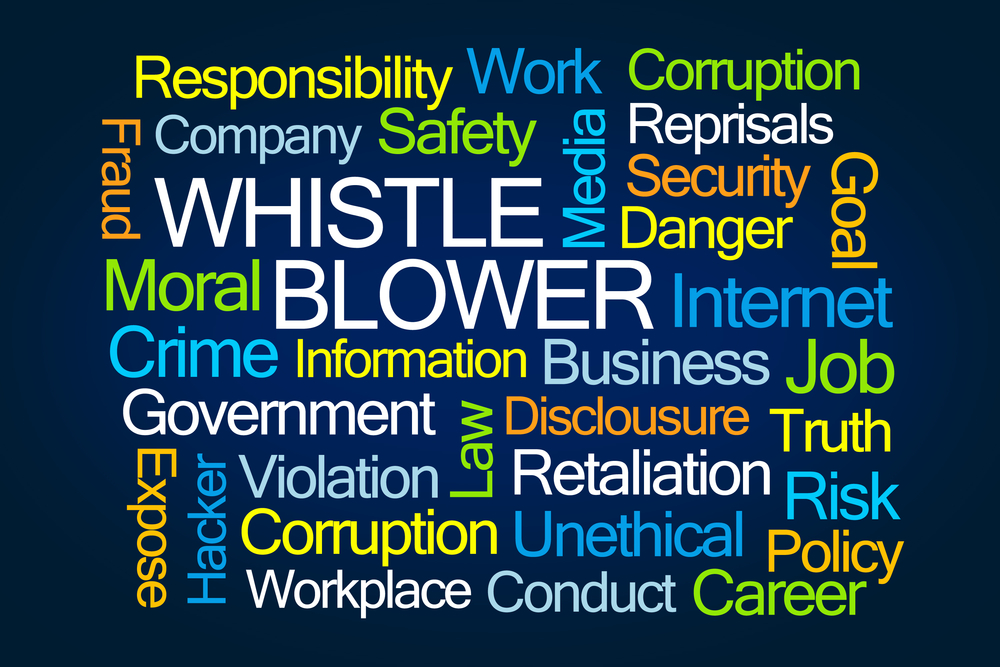
Supreme Court Hears Arguments on Whistleblower Protection
On November 28, 2017, the Supreme Court heard arguments in a case that will decide the scope of whistleblower protection under the Dodd-Frank Act. In Digital Realty Trust v. Somers, the Supreme Court will answer the question of whether the anti-retaliation provision for whistleblowers in the Dodd-Frank Act protects individuals who have not reported the alleged fraud to the Securities and Exchange Commission (SEC).
Whistleblower Protection Under The Dodd-Frank Act
The Dodd-Frank Act requires that the SEC pay monetary awards to whistleblowers who voluntarily provide the SEC with original information regarding securities violations. Whistleblowers are awarded 10 to 30 percent of any monetary recovery over $1 million collected by the SEC. The Dodd-Frank Act also prohibits employers from retaliating against whistleblowers and allows whistleblowers to file a lawsuit in court if they are fired or otherwise retaliated against by their employers. The Dodd-Frank Act defines a whistleblower as someone who provides information to the SEC about a securities law violation.
Digital Realty Trust Case
Paul Somers was an employee and high-ranking officer of Digital Realty Trust, a real estate investment company located in San Francisco. During his employment, Mr. Somers reported potential securities law violations to senior management but not to the SEC. Digital Realty Trust then fired Mr. Somers, and he filed a lawsuit under the Dodd-Frank Act’s whistleblower retaliation provisions. Although Mr. Somers never reported the violations to the SEC, the lower courts ruled in his favor stating that the Act’s whistleblower protections still applied even though he only reported the alleged SEC violations to his employer internally.
This case involves a questions of statutory interpretation. The Supreme Court’s decision will largely hinge upon whether it adopts a broad or narrow view of the Dodd-Frank provision. Digital Realty Trust argued that the Dodd-Frank whistleblower provision should be applied exactly how it is written. In other words, the statute clearly requires a whistleblower to report any violation to the SEC in order to be entitled protection. Since Mr. Somers only reported his allegations internally, and not to the SEC, Digital Realty argued he should not be entitled whistleblower protection under the text of Dodd-Frank. If the Supreme Court agrees, Mr. Somers would not be protected under the Dodd-Frank Act’s whistleblower anti-retaliation provisions.
Conversely, Mr. Somers argued that the Dodd-Frank whistleblower protection should be applied broadly to align with the modern trend of whistleblower legislation. Other whistleblower statutes, such as Sarbanes-Oxley, often require the employee to first report internally. Thus, if an employee reports misconduct internally and is then immediately terminated, the employee would not have protection under Dodd-Frank. This would be true even if employees reported to the SEC the second after they were fired. Accordingly, Mr. Somers’ argument is based on the premise that the Dodd-Frank whistleblower provision should be interpreted broadly to effectuate the true meaning of the statute: to protect whistleblowers from retaliation by their employers.
Implications For Whistleblowers
Ultimately, this case will settle conflicting interpretation of the Dodd-Frank Act among the Circuit Courts. In Asadi v. G.E. Energy (USA), LLC, 720 F.3d 620 (5th Cir. 2013), the Fifth Circuit adopted Digital Realty’s argument that Dodd-Frank’s whistleblower protection provision specifically required an employee to report to the SEC. On the other hand, in Berman v. Neo@Oglivy, LLC, 801 F.3d 145 (2d Cir. 2015), the Second Circuit adopted Mr. Somers’ argument that employees are entitled to whistleblower protection under Dodd-Frank regardless of whether they report to the SEC. Accordingly, if the Supreme Court affirms the lower courts and follows Mr. Somers’ argument, whistleblowers will be entitled to the maximum protection under Dodd-Frank even if they do not report to the SEC. The Supreme Court’s decision is expected sometime in the summer of 2018.
Thomas & Solomon represents whistleblowers. Contact us for a confidential evaluation of your situation.







